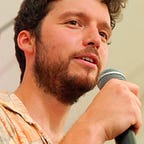A new number system
In order for our number system to reflect the universe we inhabit, we have to reshape it.
- Rather than “1” representing a single unit, 1 ought to represent the maximal whole.
- 2 could then be the first symmetrical subdivision, 3 the next symmetrical subdivision and so on,
- 0 would denote a non-existent system.
In effect, we would be counting in something akin to reciprocal space. We already count in reciprocal space in many areas of observation, like X-ray crystallography.
It’s my belief that a number system built in this way could be complete, consistent and decidable… it might also please some ancient mathematicians.
Counting in this way would be in line with reality in that it would treat the universal whole as the origin, and the small, diverse particles that are borne of it, and their quantum effects, as being the far, distant end of the spectrum, able to extend endlessly into infinite complexity.
For a long time, we have grounded our thinking in the universe being formed from multiple different particles, all with their own different interactions. But this is the wrong way to think about things — particles are the consequence of complexity, not the foundations of it.
We can form high levels of complexity from a blank sheet of homogenous energy, with a few simple repeating rules, as shown by Stephen Wolfram’s computational work.
The question I’m pondering is what the symmetrical subdivisions would be. It’s easy to imagine them as being a half, a third, a quarter and so on, but I worry that this comes from a rather subjective viewpoint. Provided the pieces produced are self-consistently symmetrical, then divisions could be different, and maybe have closer relations to fundamental universal constants. It’s notable that 1/137 seems so prevalent in the universe in the form of the fine structure constant.
Lastly, if we could crack a number system like this, it might be significantly better for accounting. Considering everything as fractions of wholes, rather than as limitless numbers from zero upwards might allow us to build an economy more based in reality, and therefore more sustainable too.
In this number system, what would infinity be? Would it be a single “building block”?
